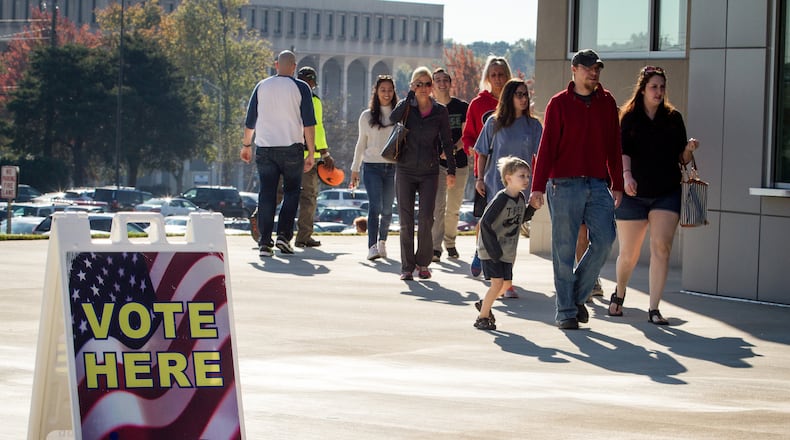In late October, rumors began circulating that Americans could vote in the 2016 election via text message.
To be clear, you cannot vote by text message. You must report to a polling place to vote on Nov. 8.
Telling people they can vote by text could be illegal, but that didn't stop some Twitter users from spreading misinformation.
This week, the fake ads began circulating widely on Twitter and other social media platforms. No fewer than four ads mocked up to look like official communications from Hillary Clinton's campaign began making the rounds. Some of the ads featured Clinton's campaign logo and said “paid for by Hillary for President.”
One ad had a picture of a black woman, another ad was written in Spanish in what seemed to be attempts to confuse minority and non-English speaking voters.
The Washington Post reported that one Twitter user in particular, @
seemed to fuel the upswing in shares of the fake ads by tweeting them out with hashtag #ImWithHer. The user's account has since been suspended.
On Tuesday, another Twitter user @mcnees aka Robert McNees reported the fake ads to Twitter support and was told it did not violate their policy:
About five hours later, Twitter had a different response for McNees:
Twitter CEO Jack Dorsey told McNees the issue had been fixed, but while some of the accounts that shared the ads were suspended, the Post reports that others were still posting on Thursday morning.
The issue has raised questions about a number of unusual election day practices such as monitoring of polling places, reports that voters can change their votes, vote swapping across state lines (which is legal but operates on an honor system) and machines that appear to be flipping votes .
According to a recent report from NBC News, the election day meddling could grow much larger by Tuesday.
The White House and the Department of Homeland Security, are coordinating the effort to combat any such attacks and officials have informed Russia that any attempts to interfere with voting or vote counting would be considered a major breach.
For up-to-date information on the 2016 election, visit the AJC's Atlanta Voter Guide to the 2016 election.
About the Author
Keep Reading
The Latest
Featured



